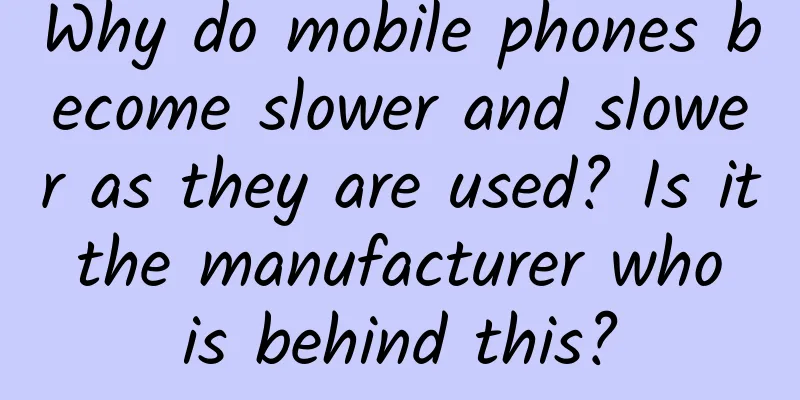Why do mobile phones become slower and slower as they are used? Is it the manufacturer who is behind this?

|
If someone told you 5 years ago that a mobile phone could do what a computer does, and that you could play large-scale games with graphics and gameplay that are no less than PC games, you would definitely think that person was joking. But in fact, as mobile phone processors become more and more powerful, these things that were previously unattainable on mobile phones have been gradually realized step by step. In November last year, Apple officially released the M1 chip.
In terms of theoretical performance, it actually beat Intel's desktop processors, which is also considered to be a sign of the rise of mobile chips. From the technical indicators, Apple's A15 single-core performance Geekbench5 can run more than 1700 points, which is higher than the 10th generation i7 and is at the level of the 11th generation i7. Even in the Android camp, not to mention the upcoming Snapdragon 8 Gen1, this year's Snapdragon 888 has a single-core Geekbench5 performance of more than 1100 points, which is also at the level of the 8th generation i7. But I don't know why the mobile phone hardware is so powerful but still has the problem of getting slower and slower with use? Unlike PC, it will not get slower after a long time of use. Some people suspect that the manufacturers are behind this, hoping that the phones will become slower after a while so that users can buy new phones. In fact, there are two main reasons why phones become slower over time. The first is caused by system updates. With the optimization of basic functions and underlying codes of Android and iOS, The update direction of the new system is no longer about fluency, but adding more new features and external expansion capabilities. These things need to consume more hardware resources and are often considered for the latest and more powerful hardware configurations. Therefore, old hardware phones will not be able to keep up with the pace after upgrading to the new system version, and naturally become more and more stuck. The second reason is the exploitation of hardware by software applications. I don’t know if you have used some simplified APPs modified by experts to remove advertisements and push notifications. The smoothness of those APPs after installation is completely different from the original version. The old version of APP also has the same effect. Just like the system version, once the basic functions of an APP are almost complete, it will start to constantly update useless additional functions or add advertising codes, which will consume more hardware resources during operation. The constant updating of APP versions will naturally make the phone slower and slower. After understanding these two points, we know that if we want to slow down the lag of the phone, we should not upgrade the system or update the APP blindly. |
>>: The iOS15.1 system channel is closed and cannot be downgraded!
Recommend
How to build a base for landing on the moon?
The National Space Administration revealed in the...
How are the frozen pears in Northeast China frozen?
Review expert: Wang Guoyi, Postdoctoral Fellow in...
iOS 15.4 released: What's new in iOS 15.4
iOS and iPad OS 15.4 are huge updates that bring ...
Stick to your dreams and strive for excellence - Proposal to women scientists nationwide
China Association for Science and Technology Wome...
How can we effectively improve ROI if we don’t do monitoring and analysis for app promotion?
Local promotion is an effective way for App to ac...
How to promote products with the help of KOLs on Xiaohongshu?
With the rise of awareness among the new generati...
Google is developing an IoT version of Android to unify smart homes
The battle for smartphone operating systems has c...
Under the new circumstances, what minefields must self-media stay away from?
This afternoon, the industry broke the news: In o...
Places to drink tea in Yuelu District, Changsha High-end studio takeaway recommended for tea tasting
Places for drinking tea in Yuelu District, Changs...
Event planning and promotion丨A universal event planning solution!
There is actually no shortcut to planning an even...
Xiaobai Moving Brick Project 1.0, pure mobile phone operation, earn some pocket money every day
Xiaobai Moving Brick Project 1.0, pure mobile pho...
Unlock Didi's mysterious function and test the "Didi Ticket" zero-threshold taxi-hailing experience
You don’t need to download Didi, register an acco...
How to use traffic thinking to tap into the Douyin live e-commerce ecosystem?
In the PC era, the Web 1.0 period was mainly base...
Analysis of the "Fan Deng Reading" activity
The case analysis brought to you today is Fan Den...









